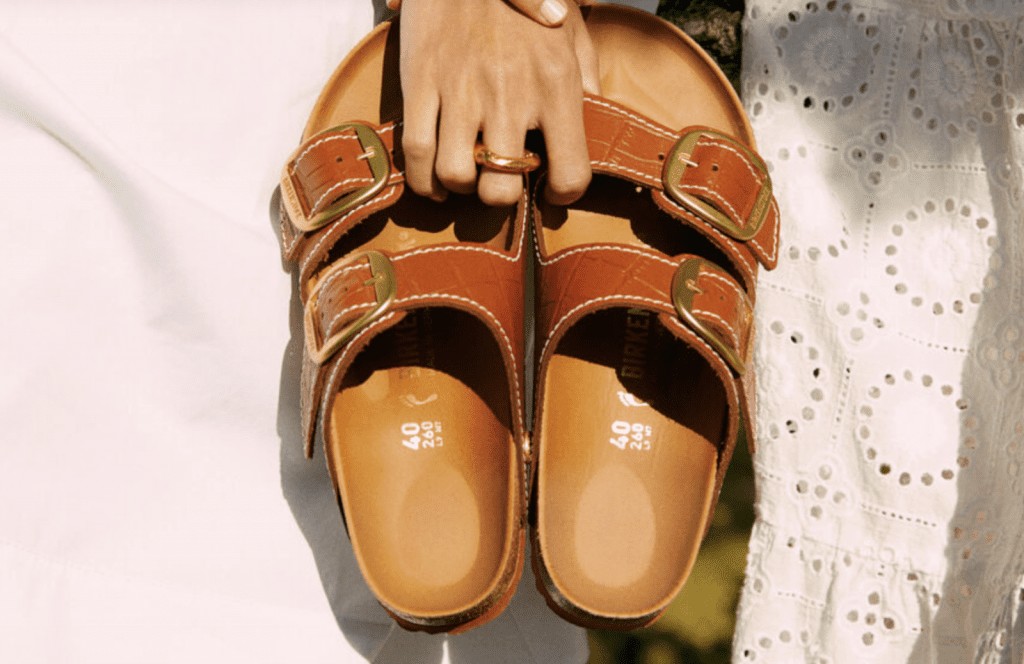Jessica Simpson is looking to buy back her brand after selling off a majority stake to the Camuto Group in 2005, a move that enabled the fashion label to “find its groove by targeting regular women, not the high-fashion types celebrities often attempt to court,” as Bloomberg put it back in 2015. Boasting more than two dozen product categories – from clothing to homewares – and big-name retail partners like Nordstrom, Macy’s, Lord & Taylor, and even Bed Bath & Beyond, Simpson’s brand was slated for super-sized growth under the watch of Sequential Brands Group, which snapped up the company from Camuto in 2015 with the aim of boosting revenues to as much as $3 billion.
“The success of Ms. Simpson’s brand is a bit of an anomaly in the retail sector,” the Wall Street Journal wrote in 2015, reflecting on the success of the now-16-year-old empire. “While other celebrity brands have fizzled out, Ms. Simpson’s 10-year-old line has expanded” in a major way. At the same time, Bloomberg called the brand’s $1 billion in annual sales “an aberration in a retail landscape littered with dead celebrity brands.” Between the mass-market might of the Simpson brand and Sequential’s prowess in the fashion, home, active, and lifestyle categories, the plan for international expansion under the watch of Sequential – which paid $117.5 million in cash in addition to putting up an undisclosed amount of stock in exchange for a 62.5 percent stake in the brand – seemed to have serious potential.
Fast forward to August 31, and Sequential revealed that “significant debt on its corporate balance sheet” has prompted it to file for Chapter 11 bankruptcy protection in Delaware, and that it will sell the majority of its assets through an impending court-supervised auction. While the Sequential roster consists of an array of brands, including Gaiam, Joe’s Joes, Ellen Tracy, William Rast, and Caribbean Joe, the Jessica Simpson label is said to be the most compelling of all; the brand has reportedly maintained its $1 billion in annual sales (prior to the onset of the pandemic, at least).
Bloomberg reported that as of August 31, two initial bidders had offered $375 million for many of the company’s assets. Meanwhile, the Simpson family is said to have reached a tentative deal with Sequential after putting forth an $88 million offer for the musician-turned-mogul’s eponymous label and nabbed the title of stalking horse bidder.
The Business of the Eponymous
Should the deal ultimately go through, it will be the latest in a string of instances in which fashion figures have bought themselves – or more accurately, their trademark rights – back after selling them off, which is rarely a small matter when those rights stem from an eponymous label, and therefore, tend to restrict the abilities of those individuals to conduct similar business under their names.
Roland Mouret, the creator of the iconic “Galaxy” dress, for instance, sold off a controlling stake in his brand – and with it, the trademark rights in his eponymous label – to investors in 2010. After parting ways with those backers on the basis of “strategic differences,” the French designer was forced to adopt a new name – 19RM – in order to continue operating within the fashion space, but ultimately, bought back the rights in his name in 2010 for an undisclosed sum. “It took time — but I am really happy,” Mr. Mouret said of the deal at the time.
Two years later, American designer Adam Lippes successfully re-acquired the rights to his eponymous brand from Kellwood, which had bought the New York-based fashion brand in 2010 in furtherance of what it called the “first in a series of aggressive expansion plans.” And still yet, one of the more famous examples dates back further – to the 1980s – when Halston bought back his name for use in the core category of apparel from Playtex, which acquired ownership of the legendary designer’s brand in 1983 after its parent, holding company Esmark, bought Halston’s then-owner Norton Simon. (Norton Simon Industries, a conglomerate that owned brands including Avis, Wesson Oil and Max Factor, bought the Halston brand for approximately $12 million in stock in 1973.)
In furtherance of the 1984 deal, Halston, himself, bought the trademark rights for the “made-to-order and ready-to-wear” divisions of the business, while Playtex retained the right to use the Halston name on fragrances; it also retained Halston’s now-notorious contract with J.C. Penney. The figures associated with the deal were never revealed, but Halston – born Roy Halston Frowick – did provide some insight into his initial sale of the business, saying, “At that time, I needed a better league of businessmen to take advantage of all the options in order to go on to bigger and better things.”
Not all eponymous label sales end up the same way, of course. One of the most notorious cases in this area involves designer Joseph Abboud, who launched his label in 1987 and thirteen years later, in 2000, sold all of his rights in the brand to JA Apparel for $65.5 million. As part of the deal, Abboud let go of “all rights to use and apply for the registration of new trade names, trademarks, service marks, logos, insignias and designations containing the words ‘Joseph Abboud,’ ‘designed by Joseph Abboud,’ ‘by Joseph Abboud,’ ‘JOE’ or ‘JA,’ or anything similar to or derivative thereof, either alone or in conjunction with other words or symbols” in certain scenarios.
Despite such restrictions on his future ability to use his name in connection with the manufacture and sale of apparel, that did not prevent Mr. Abboud from attempting starting a new label, JAZ, in connection with which he attached what would prove to be a problematic tagline, “A new composition by designer Joseph Abboud.” With such use of the Joseph Abboud name in mind, JA Apparel Corp. filed suit, alleging trademark infringement, and a New York federal court agreed, and formally prohibited him from using the tagline by a New York federal court in the late 2000s.
Similar legal battles have plagued Gucci family members, for instance, following the sale of the once-family-owned brand to Kering in 1999, and more recently, wedding dress designer Hayley Paige Gutman, who has clashed with former employer JLM Couture over the right to use her name on wedding wear and social media.
Taken together, these many legal squabbles are a testament to what could go wrong in the wake of “a transfer of rights or interest in or ceding of control over an eponymous brand to a third party (or to a friendly entity in which you do not have full ownership), which could diminish [a designer’s] right to use and/or control the use of his/her name and likeness,” according to Loeb & Loeb’s Sara J. Crisafulli and Melanie J. Howard, who caution that this could very well see an individual forced to “give up domain names and social media accounts for his/her personal name, and ceasing any uses that could be confused with the use of his/her name as a brand by the company.”
In regard to Jessica Simpson, assuming that the Simpson family is not outbid in the process, their quest to add the outstanding 62.5 percent of the company to their existing 37.5 percent stake appears as though it very well might be a simpler – and less litigious – story than some of the uglier tales of eponymous labels.
As for whether the brand will reach the level of $3 billion in annual revenue that Sequential had in mind when it acquired the brand back in 2015, the Simpson family is optimistic. A representative said in a statement last week that “the Jessica Simpson brand has been a consistently profitable and expanding entity over the last 16 years, now with 33 product categories, a social reach of 15 billion fans and a booming e-commerce business.” The rep further asserted that the team “looks forward to continued growth alongside their best-in-class licensing and retail partners.”











